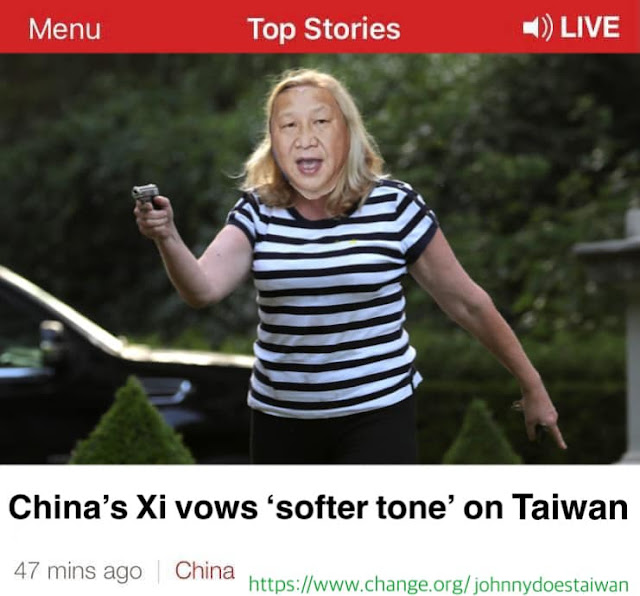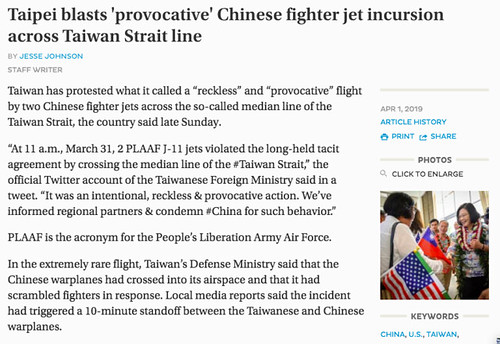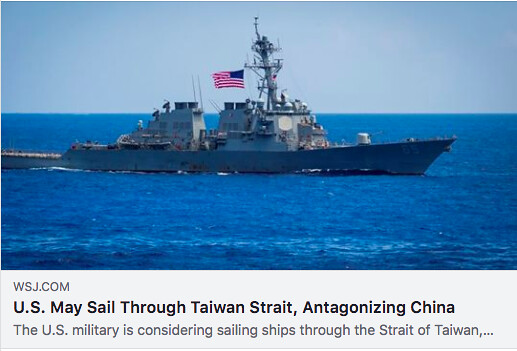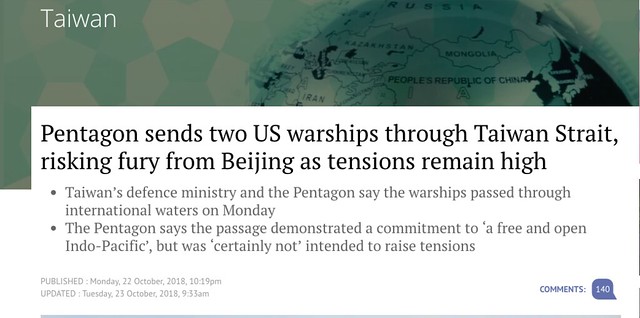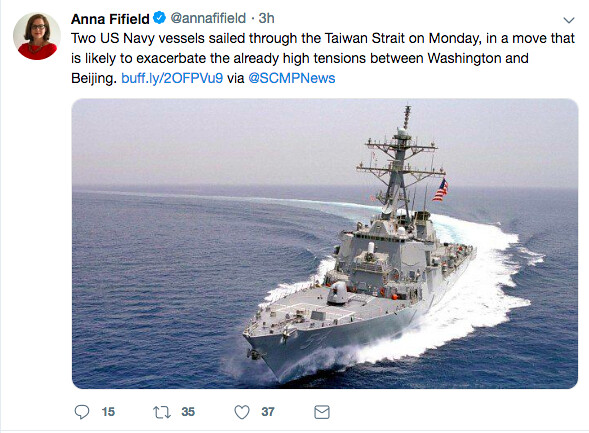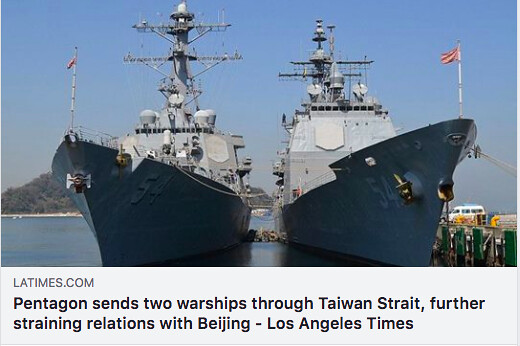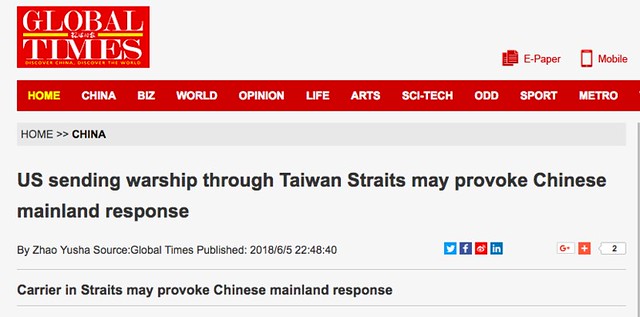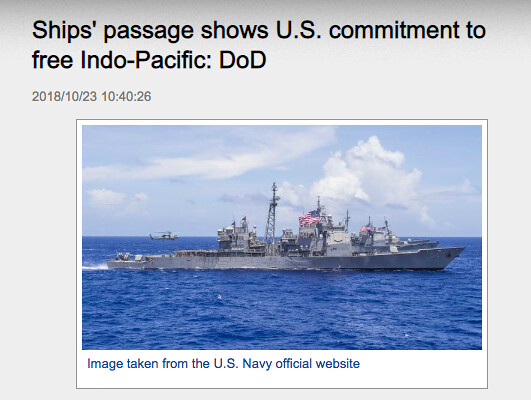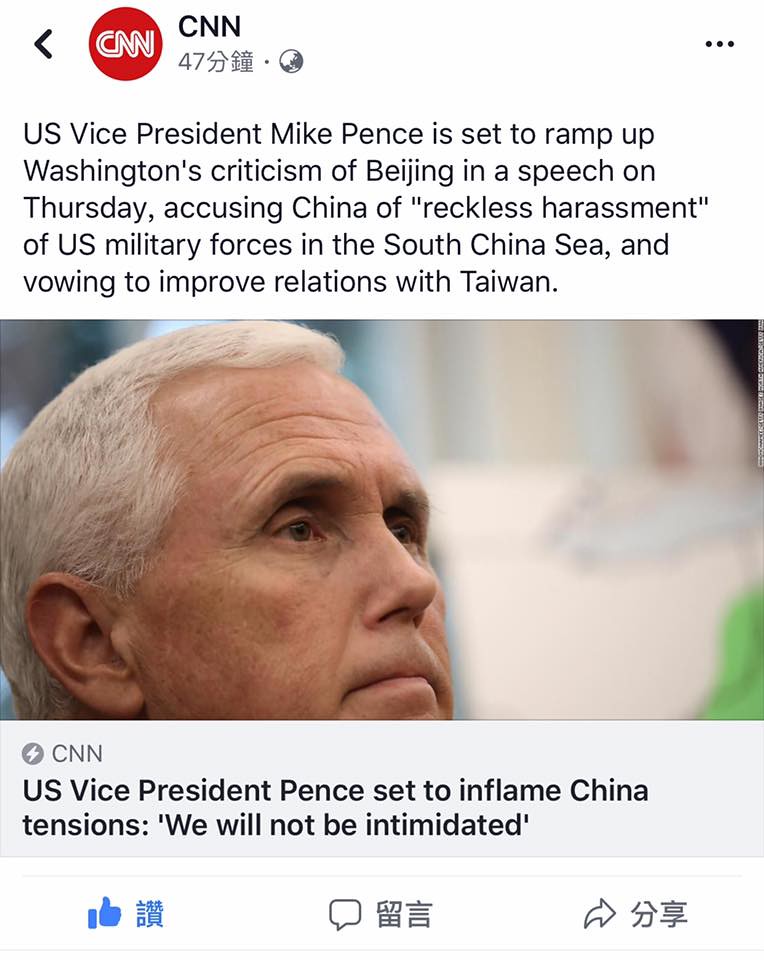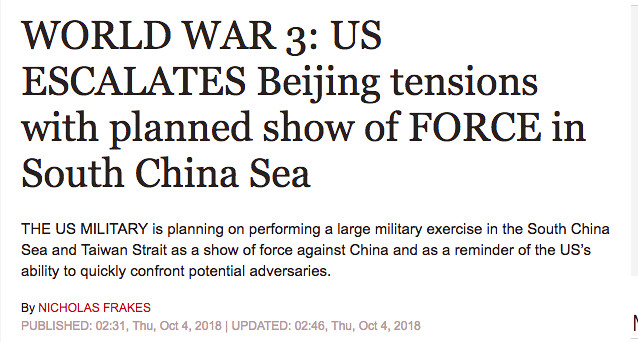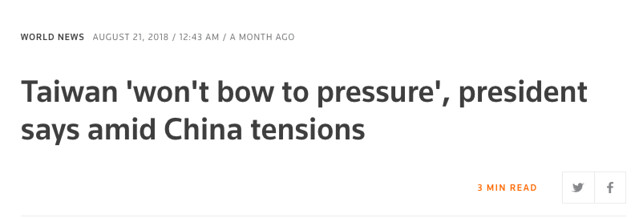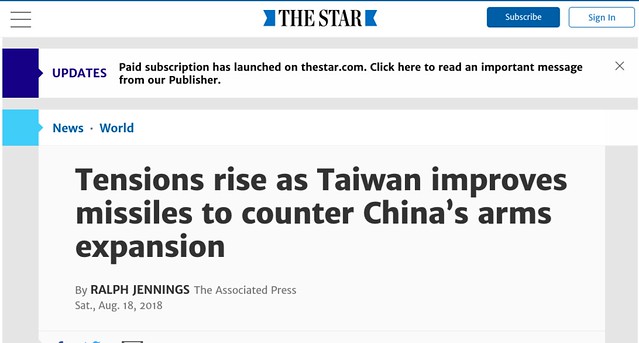
I wish the rest of the world would treat the wishes of Taiwan as seriously as they do Xi Jinping's blathering
So, yesterday Xi Jinping gave this big "Taiwan speech" that had been announced well in advance. As my husband pointed out, these speeches are hardly worth paying attention to unless you're seeking confirmation of what you already know, but they're always guaranteed to make headlines.
What could he possibly say, however, that would be new? He wasn't going to say "the bombing of Taiwan will begin in one hour", nor was he going to say "actually I've decided this whole 'Taiwan' thing is silly and we're just going to let them live in peace". So the only possible roads this thing could take would be a.) moving closer to threatening use of force or b.) moving away from threatening use of force. That's it.
And that's exactly what happened. It was the same old rhetoric: there must be "reunification", it can take place under "one country two systems" as it has with Hong Kong -- nevermind that Hong Kong is a massive failure that Taiwan should avoid emulating at all costs -- that this is an "internal matter", and that it would be best if it were done by "peaceful means".
Reading between the lines, Xi is basically saying that they're going to keep up the status quo of shaking a stick at Taiwan and calling it a carrot (as though they think the Taiwanese are not smart enough to tell the difference), they'll keep buzzing Taiwan's ADIZ and they'll keep fuming at international support for Taiwan, but they're not likely to actually start a war right now. I suppose that counts as "good news" these days.
Xi knows that this is how it'll play out, because he's perfectly aware that Taiwanese aren't interested in any kind of unification. They want to avoid a war, and will go to great lengths to maintain peace -- including maintaining the fiction of a 'status quo', when the truth is that Taiwan is already independent -- but actually becoming part of China is off the table. Frankly, it always will be. Once a group of people who have governed themselves competently in a unified territory for a long time have decided they have an identity, a history and a set of more-or-less shared civic values, they are essentially a nation. That's not the sort of thing that regresses back towards submission to some other identity they simply do not hold, under a government they can never accept.
So, he can talk about 'peaceful' unification, but he knows it's not going to happen. This speech was basically an "ok, we won't bomb you...yet". In other words, it was nothing.
The media has emphasized Xi's use of the word "peaceful", but note that he did not exactly renounce the use of force so much as not call upon it. He didn't say China would never use force, but that they'd prefer not to. So, again -- nothing.
None of this is particularly interesting, but it does give me the opportunity to point out that the media is doing what the media always does: ascribe "tensions" to anything but China. Tensions can be raised by Taiwan, or they can pop out of thin air, but as far as the international media is concerned, they never originate from China.
Here are a few clips. From the BBC:
Despite the recent heightened tensions, relations between China and Taiwan have not deteriorated to levels last seen in 1996 when China tried to disrupt presidential elections with missile tests and the US dispatched aircraft carriers to the region to dissuade them.
Where do the 'heightened tensions' come from, BBC? Tell us!
The BBC also offered us this gem:
Taiwan considers itself a sovereign state, while China views it as a breakaway province.
Please forgive your less-informed readers for not knowing who actually runs Taiwan after reading this, because you certainly both-sidesify this into abstract confusion.
To be clear: Taiwanese already run Taiwan, they commonly call their country Taiwan (only the KMT beats the "Republic of China" drum and they're neither popular nor in power), they identify as Taiwanese and their government is sovereign. It doesn't consider itself a sovereign state. It is a sovereign state, and in pretending there's a "status quo" issue or something still "undetermined" about that is simply Taiwanese being super conciliatory because they don't want war. "Okay if it stops you from bombing us we'll pretend the issue is not already resolved on our end", when it actually has been for awhile now.
That's it.
The speech comes amid rising military tensions in the Taiwan Strait. Over four days in early October, the Chinese military flew almost 150 fighter jets, nuclear-capable bombers, anti-submarine aircraft and airborne early warning and control planes into Taiwan's Air Defense Identification Zone, according to the island's Defense Ministry.
CNN's take is actually worse than the BBC's:
Speaking in the Great Hall of the People to commemorate the 110th anniversary of the revolution that ended the country's last imperial dynasty, Xi said the biggest obstacle to the reunification of China was the "Taiwan independence" force.
Note that in the headline, "reunification" is at least in quotes (acceptable), but here it's presented as-is. Why? Taiwan and the PRC have never been unified. What's this "re-" business?
And who is this "'Taiwan independence' force"? Reading this, you'd think it was a small group of separatists when in fact it's the consensus view of most Taiwanese that they are not a part of China, they are not Chinese in the sense China demands, and they don't wish to be.
From The Guardian:
China’s president, Xi Jinping, has vowed to realise “reunification” with Taiwan by peaceful means, after a week of heightened tensions in the Taiwan strait.
Who is raising the tensions, The Guardian? China. Do your readers a service and just say so.
Tensions across the Taiwan strait have been running high in recent weeks. In the first four days of October, for example, China’s People’s Liberation Army (PLA) sent nearly 150 planes into Taiwan’s air defence identification (ADIZ) zone.
Once again, why do you not ascribe these tensions to China, before immediately describing a series of actions undertaken only by China? Please just call these tensions what they are.
Meanwhile, according to the Wall Street Journal on Thursday, about two dozen US special forces soldiers and an unspecified number of marines have been training Taiwanese forces, in the latest indication of the extent of US involvement in the tensions in the area.
From the Taiwanese side there are no tensions. Taiwan is preparing because China is creating tensions. The US is standing by an important strategic partner under threat from an unreliable, authoritarian, genocidal bully. So say that.
At least The Guardian includes a Taiwanese perspective at the very end, where Premier Su rightly notes that all of these tensions come from China:
Speaking shortly before Xi, Taiwan’s premier, Su Tseng-chang, noted that China had been “flexing its muscles” and causing regional tensions.
But it does feel like they sort of 'tacked on' an alternative viewpoint rather than noting that Su's statement is simply accurate.
Anyone who watches these issues knows that the tensions do, in fact, originate entirely with China. Taiwan wants peace, period. As a friend noted, it would be helpful if China could provide us with a Tension-o-Meter which could tell us the exact level of tensions at any given time, and that meter would be accurate as China is the one who determines the tension level.
It starts and ends with them. Taiwan has done all it can to maintain peace without abrogating its freedom or dignity. Although the international media has done a slightly better job of including the Taiwanese response, and (usually) putting "reunification" in quotes, I'm still waiting for them to report this accurately.
Here, as a little dessert, have some memes:


